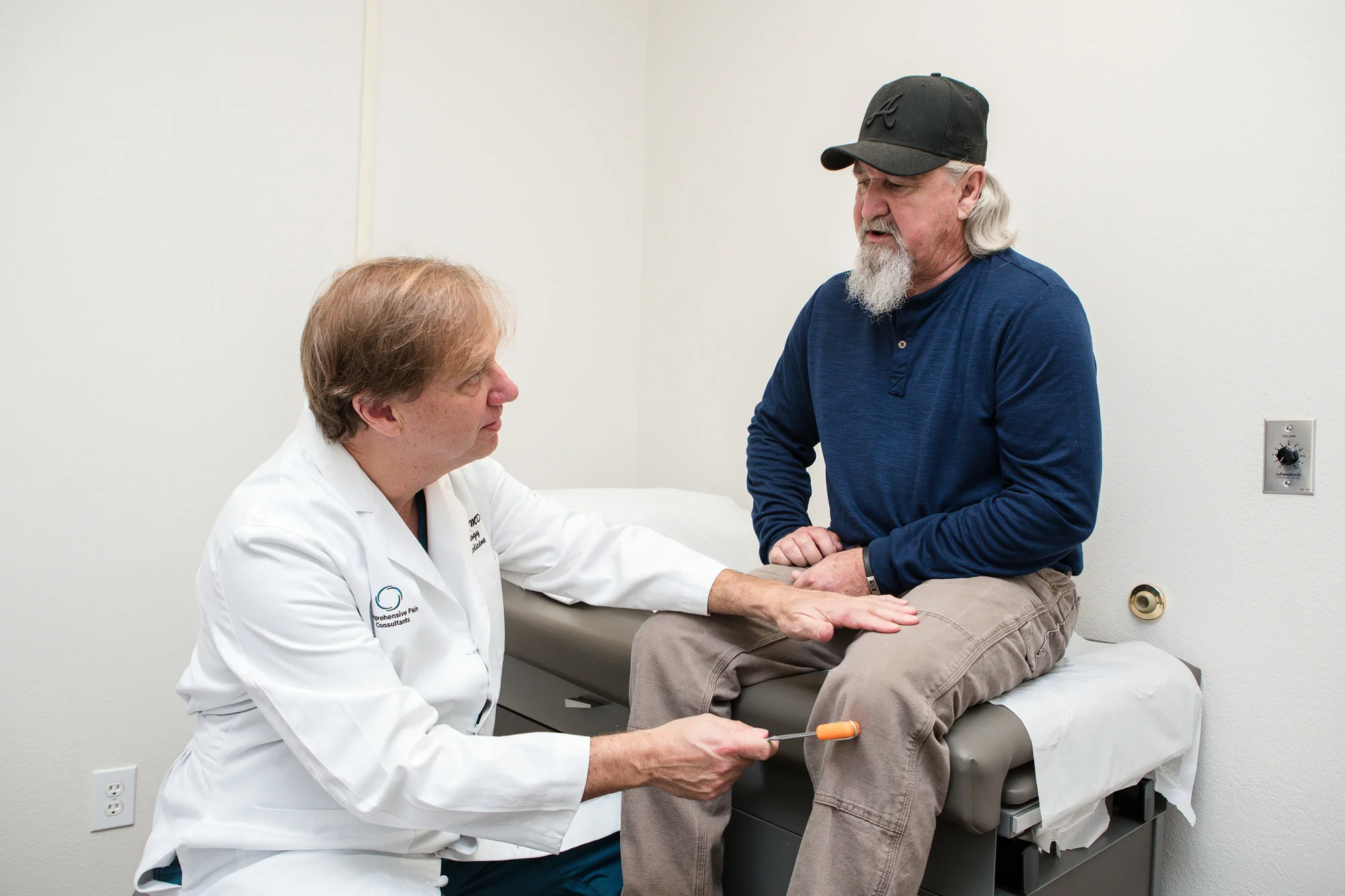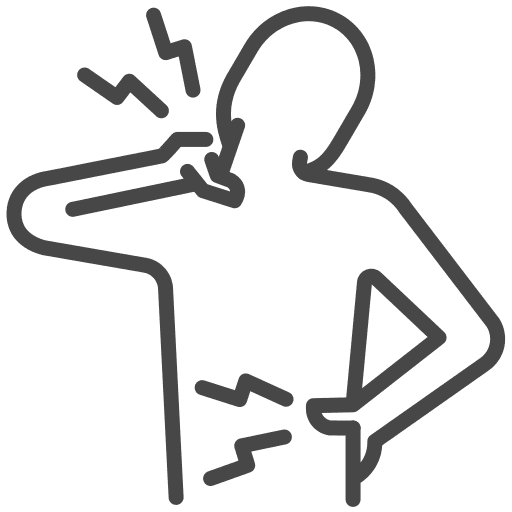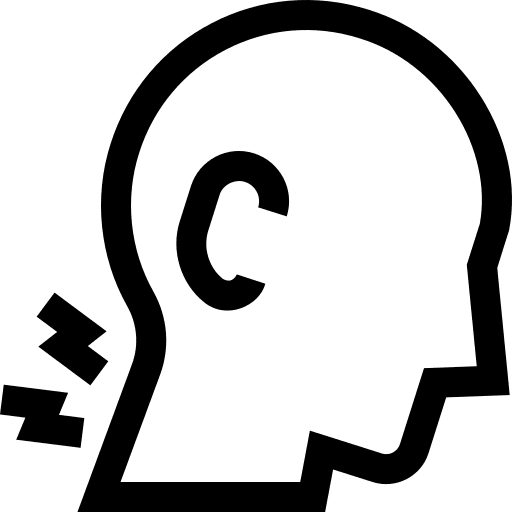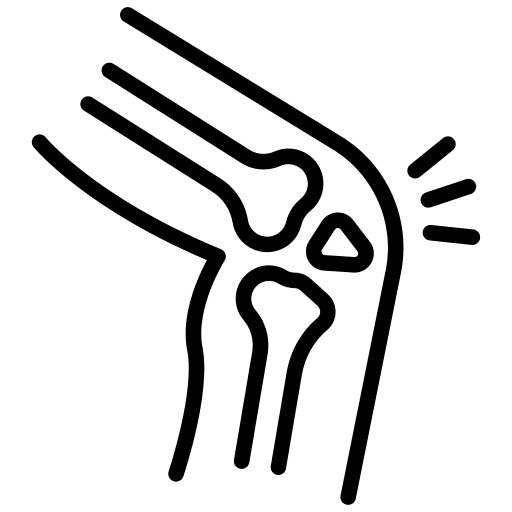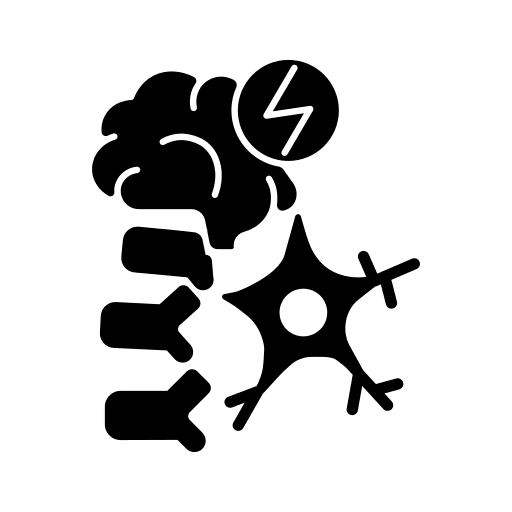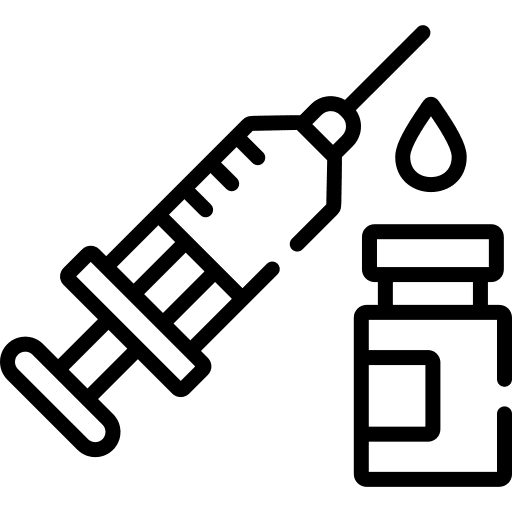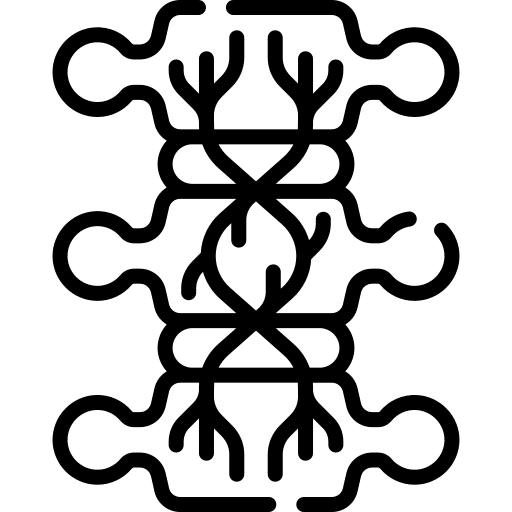
One of the ways we set ourselves apart as a top Rutherfordton NC pain management practice is by offering pain psychology treatment options. We believe in creating comprehensive pain treatment plans that take the mind-body connection into consideration.
And, since May is National Mental Health Awareness Month, we felt it would be a great opportunity to share more information a very relevant topic: the relationship between stress and chronic pain. Read on to learn more!
Does Stress Cause Pain or Does Pain Cause Stress?
In short: YES. Pain can affect stress and vice versa.
Stress changes how the body perceives pain and can even make the body more sensitive to pain. One of the reasons for this is because of how closely the nervous system and stress systems are aligned in the body. Equally important is the impact that pain has on a person’s ability to maintain a healthy state of mind. Many patients with chronic pain are also diagnosed with anxiety and/or depression. Recent studies have found that stress hormones increase in response to the “disorganized” state that chronic pain leaves a person in for an extended period.
Physical Symptoms Associated with Stress
Stress in and of itself comes with a significant number of physical symptoms. While these symptoms are certainly not pleasant, when added to the challenges associated with a chronic pain condition, they become unmanageable without help. The most common of these symptoms include the following:
-
High blood pressure
-
Tension headaches and/or migraines
-
Chest pain
-
Increased heart rate
-
Difficulty sleeping
-
Decreased immunity
-
General aches and pains
Treatments
One of the top ways to get on the path to less stress and pain is to incorporate pain psychology into a patient’s treatment plan. Pain psychologists are experts in helping people cope with the thoughts, feelings and behaviors that accompany chronic pain.
When working with a psychologist, you can expect to discuss your physical and emotional health. The psychologist will ask about the pain you experience, where and when it occurs, and what factors may affect it. In addition, he or she will likely ask you to discuss any worries or stresses, including those related to your pain. Some of the specific types of treatments available through CPC’s pain psychology department include:
Visit our pain clinic Rutherfordton NC location (or any one of our many Asheville area locations) to learn more or to begin treatment. It can be done on its own or in conjunction with other treatments a patient may already be receiving. We recommend consulting with a member of your care team prior to beginning any new treatment.
DIY Ways to Decrease Stress
While pain psychology will certainly be helpful to incorporate into pain treatments, there are also many strategies you can do right now from home. When beginning a new healthy habit, it’s best to start small. Choose something simple off the following list and try to incorporate it into your week somewhere between 1-3 times.
-
Incorporate consistent physical activity into your week
-
Practice mindfulness
-
Schedule a time to speak with a counselor
-
Journal
-
Improve your sleep hygiene
-
Surround yourself with a core group of loving and supportive individuals
For more tips, tricks and resources, visit our blog on chronic pain and mental health. You can also read more about our pain psychology at CPC’s dedicated page.
Rutherfordton NC Pain Management
Finding the most effective comprehensive pain management protocol and treatment is tricky. Don’t let finding the right treatment add to your anxiety. CPC’s dedicated medical team is comprised of experts in a wide range of non-surgical and interventional treatments, such as physical therapy, prescription pain medications, epidural steroid injections, joint & soft tissue injections, spinal cord stimulator implants, kyphoplasty as well as pain psychology. Get in touch today to learn more or schedule an appointment.


